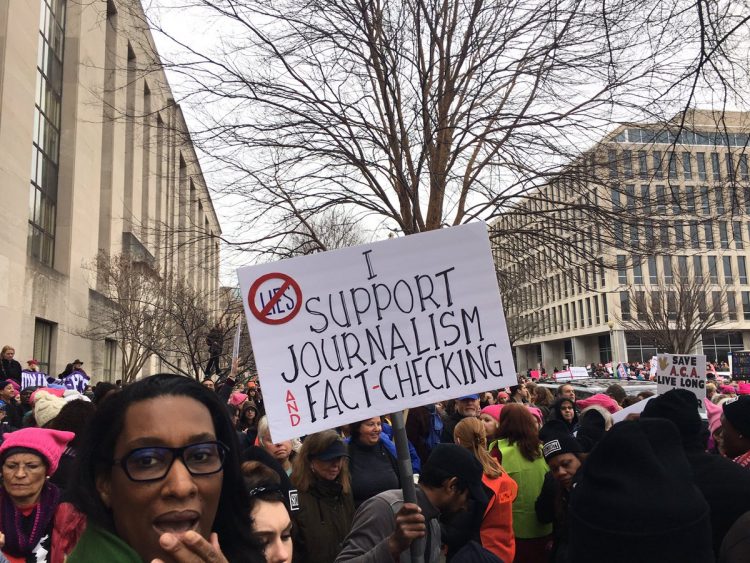— Sarah McCammon NPR (@sarahmccammon) January 21, 2017
My friend and grad school classmate Rodney Ho, in response to the above tweet From NPR’s Sarah McCammon, commented:
The Internet was supposed to bring us the “Information Age” where people would be smarter because all information is available at their fingertips. But I suspect we’re dumber for it. Heck, can you name a phone number besides your own anymore? Can you get to any location without Google Maps?
The counter-argument I’ve heard for this is that because we don’t need to remember things like phone numbers and directions, we have more brain capacity for other knowledge, so that we should all be smarter. I think it’s arguable that this hasn’t happened. I’d point to the symptoms, but then this would become a political post, and I think we can all use a break from that.
Miller’s Law postulates that we can process no more than about 7 pieces of information at one time, and that under overload conditions, we’re likely to make poorer decisions. Interestingly, Miller wrote this in 1956, well before we were flooded with information.
Miller also didn’t foresee that not only would be have to process a great quantity of information, but also that the quality of much of that information would be suspect. Social media spreads gossip and fake news at a speed unimaginable in 1956. The grapevine has become a racetrack, and that racetrack is jammed with thousands of cars (bits of information) jockeying for position.
But does that mean we’ve become dumber?
No, I think it means we’re not evolving fast enough on the biological scale to keep pace with our technological evolution. In some ways, we’ve become too smart for our own good. And that makes us seem… dumber.
